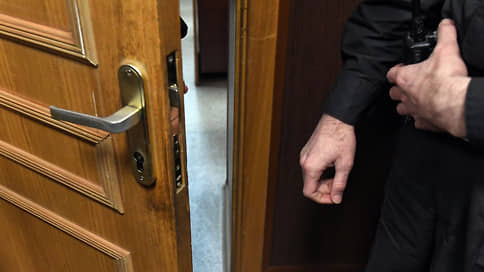Special operations against defamation – Newspaper Kommersant No. 192 (7393) dated 10/15/2022
[ad_1]

For discrediting the army, the Russians already owe the state 85.7 million rubles, according to official judicial statistics for the first six months of this year. But the rally activity of citizens, according to the same data, is on the decline: the number of fines for unauthorized speeches is significantly less than in previous similar periods. Traditionally, stable and sustainable growth is demonstrated by cases of extremism and justification of terrorism. The statistics include only one criminal case on fakes against the army, brought to a verdict, but experts remind that this article appeared recently, and predict an increase in the number of such cases.
In the first three months from the moment the sanction for discrediting the army (Article 20.3.3 of the Code of Administrative Offenses) appeared in the Code of Administrative Offenses, Russian courts fined 2,504 people under this article, and the total amount of fines amounted to 85.7 million rubles, follows from judicial statistics, published by the Judicial Department of the Supreme Court (SC). Not a single sentence under a similar criminal article (Article 280.3) has been recorded for the same time, but this is understandable: the norm that has entered into force since March of this year provides for an administrative prejudice, that is, a criminal punishment occurs only if the perpetrator within a year before has already been punished for discrediting the army administratively.
The statistics also report a single conviction for fake news about the army (Article 207.3 of the Criminal Code). In June of this year, the Meshchansky District Court of Moscow sentenced Alexei Gorinov, a municipal deputy of the Krasnoselsky District, to seven years in a penal colony under this article. At the same time, according to OVD-info (included in the register of foreign agents), 87 people are already defendants under this article.
Data for the first half of the year says little about the practice of applying sanctions for these offenses, says Stanislav Seleznev, senior partner at the Network Freedoms project. In the future, we should expect an increase in the number of such cases, he warns. The statements published on the Internet, which can be qualified as discrediting the army, are considered by the law enforcement officer to be a continuing offense, that is, according to the police, one can be held accountable for it at any time, the expert explains. Administrative punishment may be followed by a criminal charge. Well, the article about fakes about the army, unlike the article about ordinary fakes that never worked, does not imply the need to prove the existence of a causal relationship between a particular message and the consequences of it, which also simplifies its application. The expert points out that this can already be observed in practice: dozens of cases are initiated. On the other hand, Mr. Seleznev draws attention, a sharp decline is observed in cases of the rehabilitation of Nazism (Article 354.1 of the Criminal Code).
The most widely used so far is Article 280 of the Criminal Code (public calls for a violent change in the constitutional order). It even shows steady growth, with 161 convictions in the first half of this year, almost a quarter more than a year earlier and twice as many as in the first half of 2020. The number of convictions for justifying terrorism is also growing: from 89 in the first half of last year to 126 this year.
The number of those brought to administrative responsibility for displaying prohibited symbols has noticeably increased (Article 20.3 of the Code of Administrative Offenses). For six months, the courts considered a total of 2690 protocols on such cases, 2399 people were fined and 258 were sent under administrative arrest. In the first half of last year, there were 2190 cases (1653 were fined, 50 were arrested). Mr. Seleznev explains such dynamics by the expansion of the list of banned organizations: the list of prohibited symbols is growing along with it.
But street protest activity, according to statistics, is on the decline: in the first half of the year, the courts considered a total of 16,151 cases of participation or organization of illegal rallies and fined 14,180 people for 171 million rubles, another 1,465 were sent under arrest and 361 – for compulsory work. In the first half of last year, there were almost a quarter more such cases – 19,560: then the courts fined 13,096 people for 167.2 million rubles, another 1,682 were sent under arrest, and 682 – for compulsory work.
OVD-info lawyers believe that the administrative persecution of protesters is not reduced, but rather “redistributed”, including in favor of the new article of the Code of Administrative Offenses on discrediting the army. It began to be used where “rally” sanctions would have been applied earlier, experts explain. “The number of cases under this article is growing, we have already counted more than 4 thousand administrative cases“ on discrediting ”, relying on the websites of city courts,” one of Kommersant’s interlocutors in the legal department of OVD-info explained.
Political scientist Konstantin Kalachev says that the decrease in rally activity is natural against the backdrop of the mass departure of protest leaders and the general tightening of legislation: now anyone will think ten times whether to go out into the street and picket.
[ad_2]
Source link








